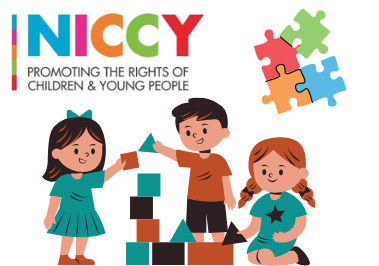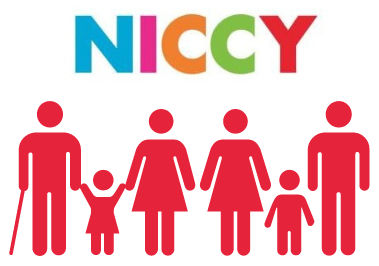Poverty
Poverty issues page - click here for find out more.
Scroll down to read the Commissioner's anti-poverty blog.

The discussion focused on the fact that regardless of the overwhelming evidence there had been little, if any, progress in addressing child poverty, and no consideration by our governments on its eradication. This is the greatest violation of the rights of children and is certainly not giving them the best start in life. Yet we are not marching the streets or making it one of the main issues in the recent election – my biggest frustration over the 7 years as your Children’s Commissioner.
 There are few who are comfortable with the idea that children are going without basic necessities, such as appropriate clothing, nutritious food and a warm home. However, many refuse to believe that this situation exists in Northern Ireland, ignoring the fact that the government’s own statistics show that one in four children, more than 100,000 children are living in poverty.
There are few who are comfortable with the idea that children are going without basic necessities, such as appropriate clothing, nutritious food and a warm home. However, many refuse to believe that this situation exists in Northern Ireland, ignoring the fact that the government’s own statistics show that one in four children, more than 100,000 children are living in poverty.
And then there are others who do not deny that thousands of children in NI are living in poverty but choose to focus on the role of parents blaming them for their children’s deprivation. The debate is then centred on judging parents. They ignore the fact that two out of three children in poverty are living in working households.
 This perspective has, in the last decade, been perpetuated by the UK government who have targeted families (and therefore children) for the most draconian cuts in social security – contrary to statutory commitments to end child poverty made a few years earlier. Even when there have been commitments from the UK or NI governments to take action, little changes. As a result the figures have remained stubbornly consistent. Since 2002, the child poverty rate has fluctuated between 20 and 25% and this has remained consistently 5 percentage points higher than the poverty rate for the population as a whole. Children remain the biggest group in our society affected by poverty. The lack of a NI Assembly and Executive, alongside Brexit, has meant that actions that could have been taken locally were not.
This perspective has, in the last decade, been perpetuated by the UK government who have targeted families (and therefore children) for the most draconian cuts in social security – contrary to statutory commitments to end child poverty made a few years earlier. Even when there have been commitments from the UK or NI governments to take action, little changes. As a result the figures have remained stubbornly consistent. Since 2002, the child poverty rate has fluctuated between 20 and 25% and this has remained consistently 5 percentage points higher than the poverty rate for the population as a whole. Children remain the biggest group in our society affected by poverty. The lack of a NI Assembly and Executive, alongside Brexit, has meant that actions that could have been taken locally were not.
We are now in the most severe cost of living crisis for a generation and still no NI Assembly and Executive to mitigate the worst effects for our children. There has been a huge increase in the numbers of families relying on foodbanks to feed their children, and predictions that by January next year 72% of households in Northern Ireland will be living in fuel poverty. This startling figure is an indicator of the high numbers of people who are “just about managing” but will be plunged into poverty if they are not provided with the assistance that they need.
In contrast to the lack of public debate we are replete with discussion and angst over fuel poverty, food poverty, period poverty …….. Such a narrative allows us to appease our conscience because we console ourselves that by having food banks, fuel initiatives, clothing banks and free period products, we are making it better. And indeed we are; but these are sticking plaster solutions. Families in poverty can not buy food, heat their homes or buy period products for their children. Providing them with an adequate income means that they can choose their own food, hygiene products, clothing and pay their bills. Compartmentalising poverty in this way only serves to further erode the dignity of families, who should not be dependent on charity to survive.
 It is absolutely vital that the Executive and Assembly are restored in Northern Ireland, to ensure that families are able to whether the cost of living storm that is ahead and that they fulfill the New Decade New Approach commitments of developing an Anti-Poverty Strategy and extending the mitigations package. NICCY has been actively involved in advising on the new mitigation package and an Anti-Poverty Strategy. I am not advocating for a separate child poverty strategy as all previous ones have concentrated on making poor children happy, through mitigating the impact of poverty, rather than eradicating it. Children are poor because their parents and carers are poor, therefore we need an anti-poverty strategy that specifically focuses on actions to eradicate child poverty by ensuring that families have enough money in their pockets to keep their children warm, properly fed, safe and secure.
It is absolutely vital that the Executive and Assembly are restored in Northern Ireland, to ensure that families are able to whether the cost of living storm that is ahead and that they fulfill the New Decade New Approach commitments of developing an Anti-Poverty Strategy and extending the mitigations package. NICCY has been actively involved in advising on the new mitigation package and an Anti-Poverty Strategy. I am not advocating for a separate child poverty strategy as all previous ones have concentrated on making poor children happy, through mitigating the impact of poverty, rather than eradicating it. Children are poor because their parents and carers are poor, therefore we need an anti-poverty strategy that specifically focuses on actions to eradicate child poverty by ensuring that families have enough money in their pockets to keep their children warm, properly fed, safe and secure.
There are actions that can be taken and the Anti-Poverty Strategy Expert Panel and working groups have been exploring a range of options. These will include Increasing the income of families through restoring the social security system. Mitigation packages are a temporary “fix” and the focus must be on reversing the harmful ‘reforms’ that have resulted in a social security system full of holes and not fit for purpose. A system that supplements low wages paid by employers, and punishes those who find themselves unable to work. The reform to the social security system must include a weekly ‘child payment’ of £20 to all children in poverty.
Whilst increasing income we must also reduce the costs to families of essentials and universal services, this would include making education free. In 2017, NICCY found that families spend over £1000 per child, to send their children to school. The most costly items were uniforms, school meals and transport. I look forward to the outcome of the review on uniform grants and free school meals.
 Families are in desperate need for help with the costs of childcare, which is of a high quality and accessible. The introduction of a Child Care Strategy is now a matter of urgency.
Families are in desperate need for help with the costs of childcare, which is of a high quality and accessible. The introduction of a Child Care Strategy is now a matter of urgency.
We know that particular families such as those where someone has a disability, families with no recourse to public funds and single parent families are particularly vulnerable and there should be tailored interventions to support them.
I’m not going to pretend that taking the above actions are cost neutral – far from it. They will cost but the rewards will be multiple – in terms of emotional and physical health, criminal justice, safeguarding and education for children which will impact them now and on the adults that they will become.
 The alternative is abandoning our children which was starkly pointed out by Dr Julie-Ann Maney when she informed us that she and her colleagues at the Royal Hospital for Sick Children were bracing themselves for a surge in baby deaths due to Sudden Infant Death Syndrome triggered by hypothermia in the winter months.
The alternative is abandoning our children which was starkly pointed out by Dr Julie-Ann Maney when she informed us that she and her colleagues at the Royal Hospital for Sick Children were bracing themselves for a surge in baby deaths due to Sudden Infant Death Syndrome triggered by hypothermia in the winter months.
As Mick Lynch, RMT leader recently stated, ‘We refuse to be poor any longer’.
Poverty issues page - click here for find out more.

Too many children are refusing to ask their parents for money for school trips and…
Commissioner's Blog
When I took on the role of Commissioner for Children and Young People it was…
Commissioner's Blog
On Monday the 2nd March, as I was leaving home to start my first day…
Commissioner's Blog